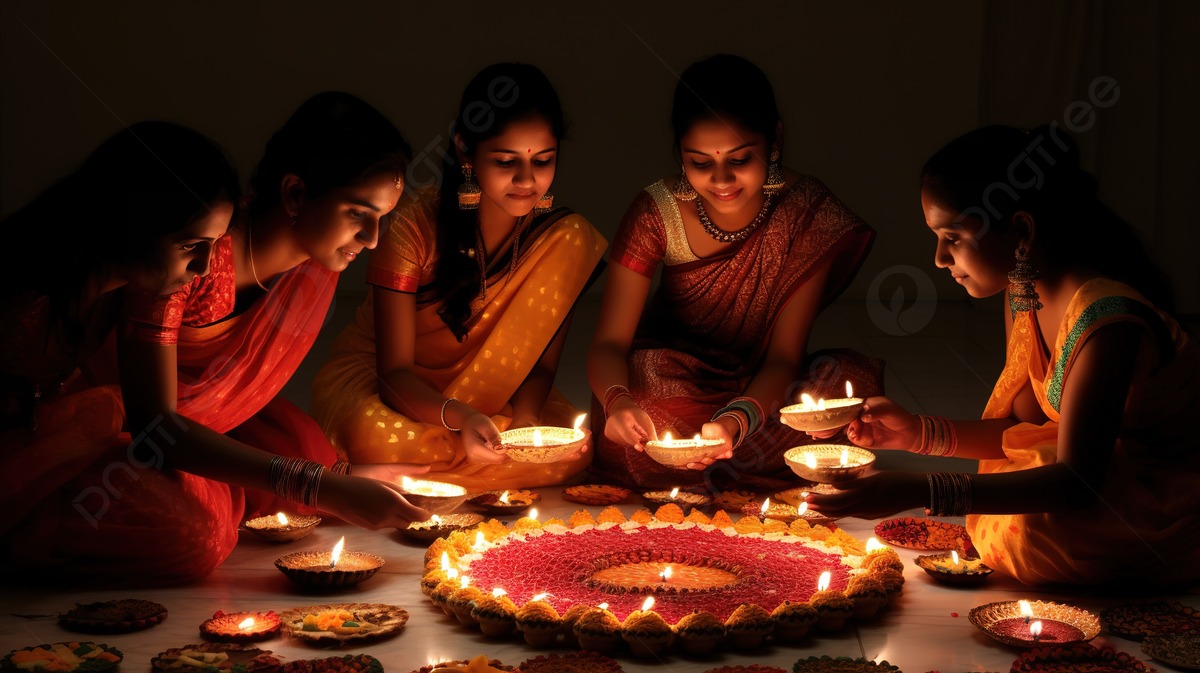
Diwali is the Hindu festival of lights with its variations also celebrated in other Indian religions. It symbolises the spiritual "victory of light over darkness, good over evil, and knowledge over ignorance". Diwali is celebrated during the Hindu lunisolar months of Ashvin (according to the amanta tradition) and Kartika (between mid-October and mid-November). The celebrations generally last five or six days. During the festival, the celebrants illuminate their homes, temples and workspaces with diyas (oil lamps), candles and lanterns Hindus, in particular, have a ritual oil bath at dawn on each day of the festival. Diwali is also marked with fireworks and the decoration of floors with rangoli designs, and other parts of the house with jhalars. Food is a major focus with families partaking in feasts and sharing mithai.
Read More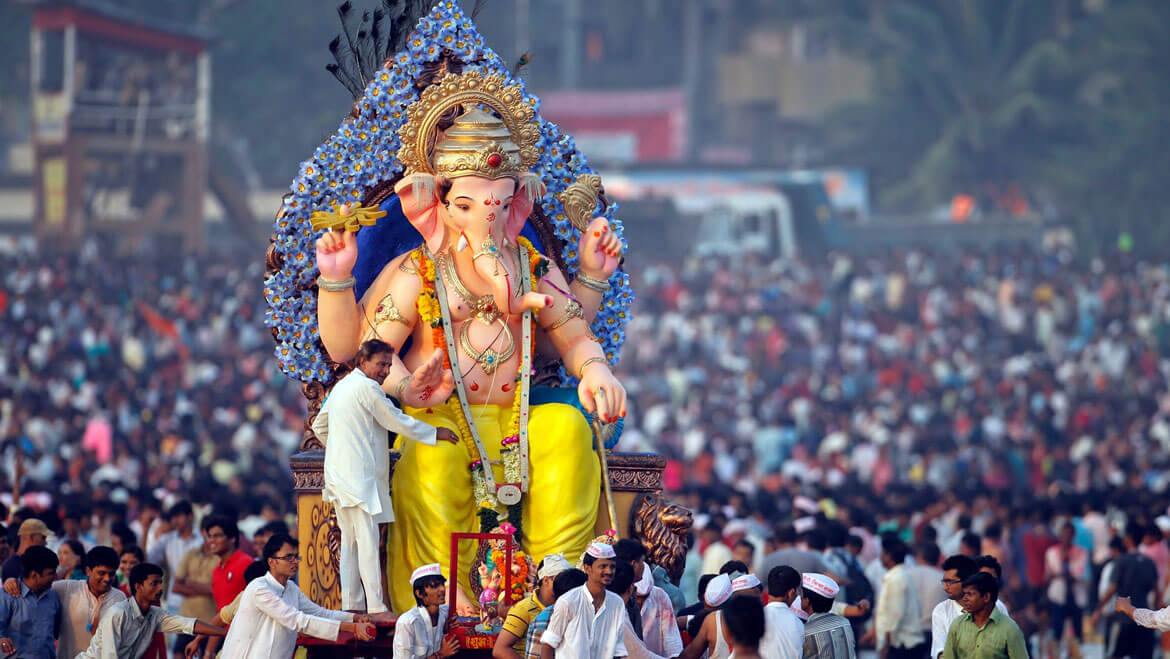
Ganesh Chaturthi, also known as Vinayak Chaturthi or Ganeshotsav, is a Hindu festival commemorating the birth of the Hindu god Ganesha.The festival is marked with the installation of Ganesha's clay idols privately in homes and publicly on elaborate pandals (temporary stages). Observances include chanting of Vedic hymns and Hindu texts, such as prayers and vrata (fasting). Offerings and prasada from the daily prayers, that are distributed from the pandal to the community, include sweets such as modaka as it is believed to be a favourite of Ganesha. The festival ends on the tenth day after start, when the idol is carried in a public procession with music and group chanting, then immersed in a nearby body of water such as a river or sea, called visarjan on the day of Anant Chaturdashi.
Read More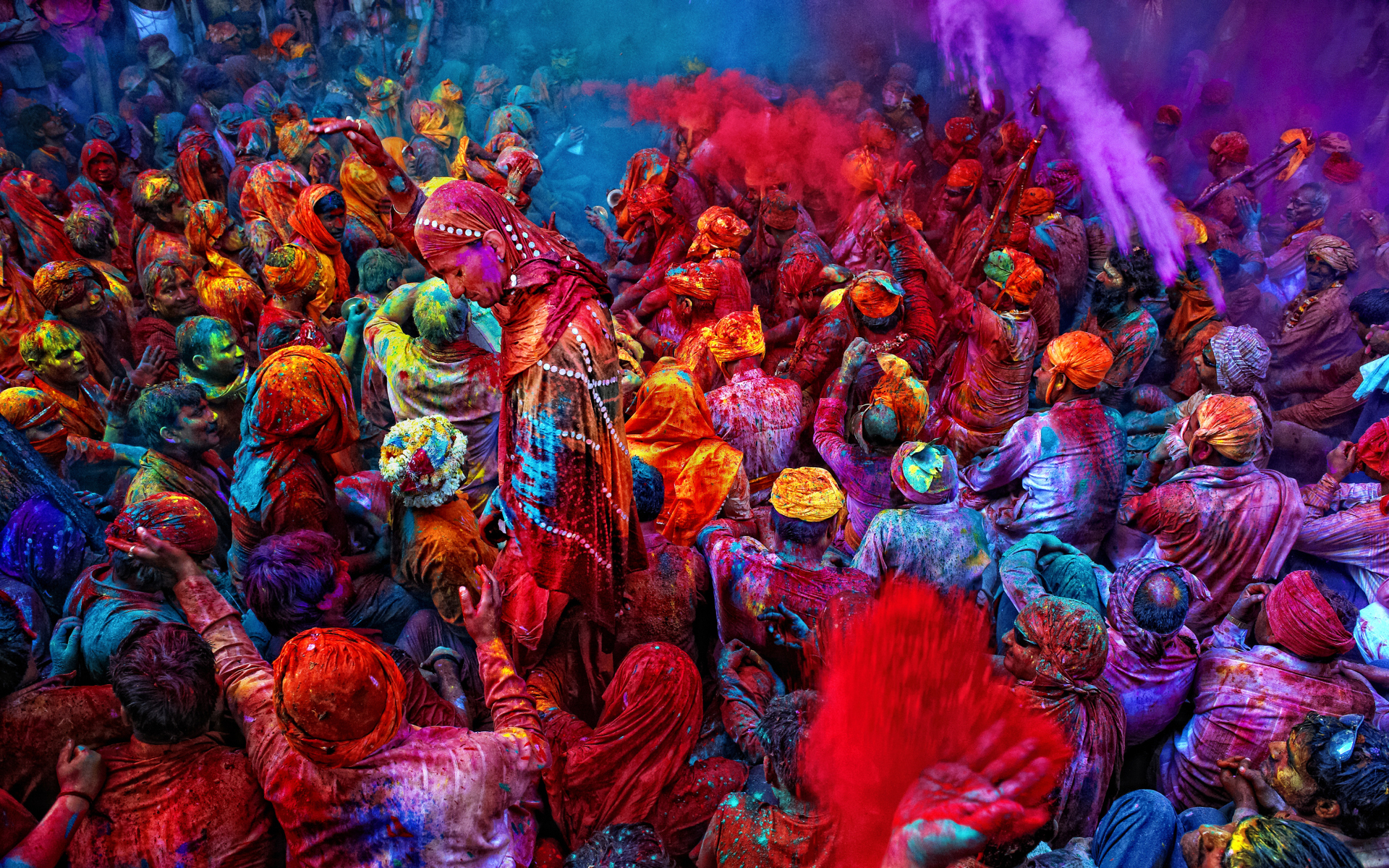
Holi is a popular and significant Hindu festival celebrated as the Festival of Colours, Love and Spring.It celebrates the eternal and divine love of the god Radha and Krishna. Additionally, the day also signifies the triumph of good over evil, as it commemorates the victory of Vishnu as Narasimha Narayana over Hiranyakashipu. Holi originated and is predominantly celebrated in the Indian subcontinent but has also spread to other regions of Asia and parts of the Western world through the Indian diaspora.
Read More
Bathukamma is a flower-festival celebrated by the women of Telangana and some parts of Andhra Pradesh. Every year this festival is celebrated as per the Sathavahana calendar for nine days starting on Pitru Amavasya, which usually coincides with the months September–October of the Gregorian calendar. In Telugu, ‘Bathukamma' means ‘Mother Goddess come Alive’. Bathukamma is a beautiful flower stack, arranged with different unique seasonal flowers most of them with medicinal values, in seven concentric layers in the shape of temple gopuram. It is usually brothers, who bring flowers to their mother and sisters to arrange bathukamma.
Read More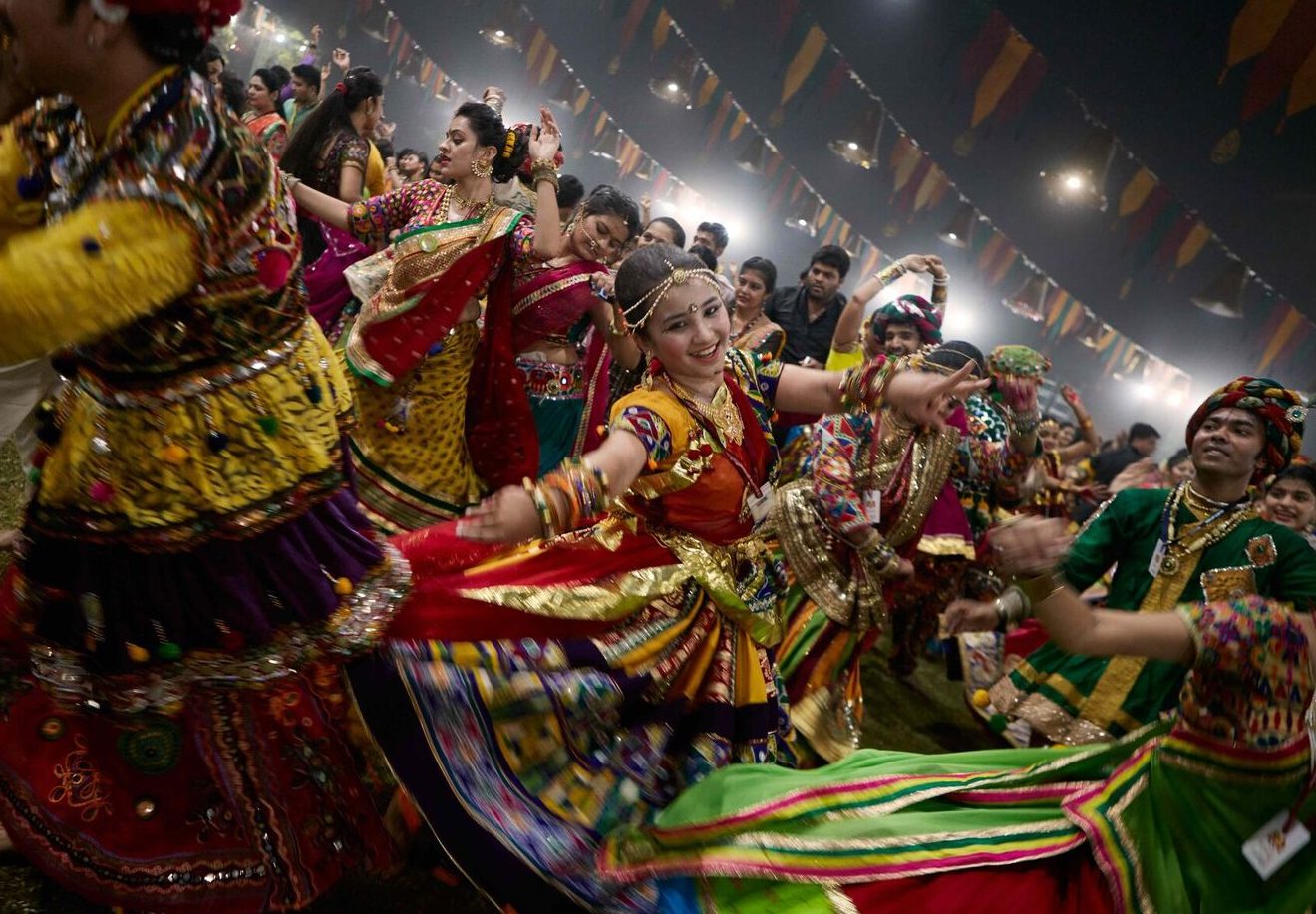
Navaratri is an annual Hindu festival observed in the honour of the goddess Durga also referred to as Adi Parashakti. It spans over nine nights (and ten days), first in the month of Chaitra (March/April of the Gregorian calendar), and again in the month of Ashwin (September–October).It is observed for different reasons and celebrated differently in various parts of the Hindu Indian cultural sphere. Theoretically, there are four seasonal Navaratri. However, in practice, it is the post-monsoon autumn festival called Sharada Navaratri.
Read More
Krishna Janmashtami, also known simply as Krishnashtami, Janmashtami, or Gokulashtami, is an annual Hindu festival that celebrates the birth of Krishna, the eighth avatar of Vishnu. In certain Hindu texts, such as the Gitagovinda, Krishna has been identified as supreme God and the source of all avatars. It is an important festival, particularly in the Vaishnavism tradition of Hinduism. The celebratory customs associated with Janmashtami include a celebration festival, reading and recitation of religious texts, dance and enactments of the life of Krishna according to the Bhagavata Purana, devotional singing till midnight (the time of Krishna's birth), and fasting (upavasa), amongst other things.It is widely celebrated across India and abroad.
Read More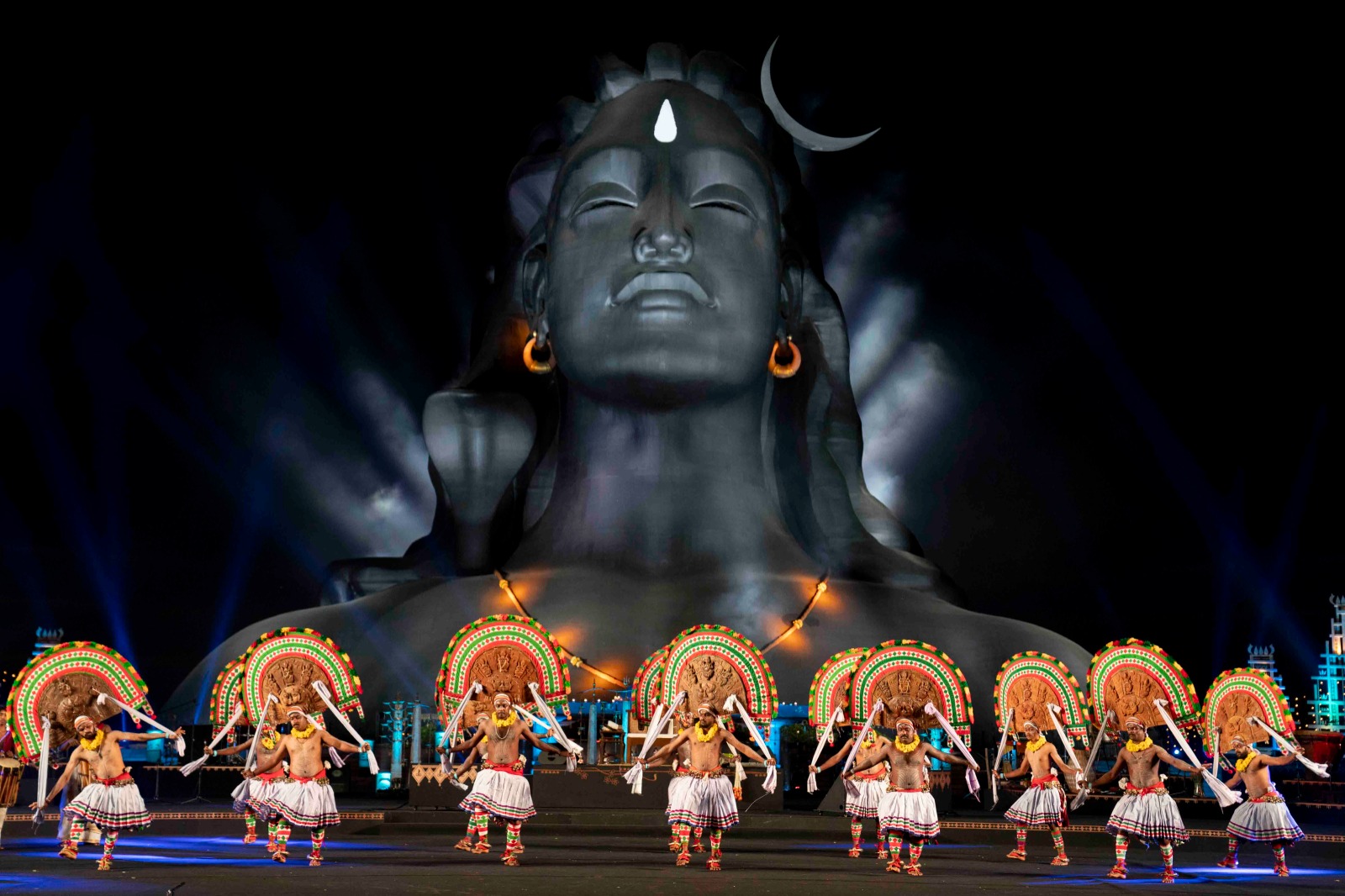
Maha Shivaratri is a Hindu festival celebrated annually in honour of the deity Shiva, between February and March According to the Hindu calendar, the festival is observed on the fourteenth day of the dark (waning) half of the lunar month of Phalguna or Magha.The festival commemorates the wedding of Shiva and Parvati, and the occasion that Shiva performs his divine dance, called the Tandava.It is a notable festival in Hinduism, marking a remembrance of "overcoming darkness and ignorance" in life and the world. It is observed by remembering Shiva and chanting prayers, fasting, and meditating on ethics and virtues such as honesty, non-injury to others, charity, forgiveness, and the discovery of Shiva Ardent devotees stay awake throughout this night. Others visit one of the Shiva temples or go on a pilgrimage to the Jyotirlingams.
Read More)
Onam is an annual Indian harvest festival celebrated predominantly by the Hindus of Kerala. A major annual event for Keralites, it is the official festival of the state and includes a spectrum of cultural events.Onam commemorates King Mahabali and Vamana. According to Hindu legends, Onam is celebrated in Kerala in remembrance of the good governance under the rule of daitya king Mahabali, a mythical king.The date of Onam celebration is based on the Panchangam, and falls on the 22nd nakshatra Thiruvonam in the month Chingam of Malayalam calendar, which in Gregorian calendar falls between August–September
Read More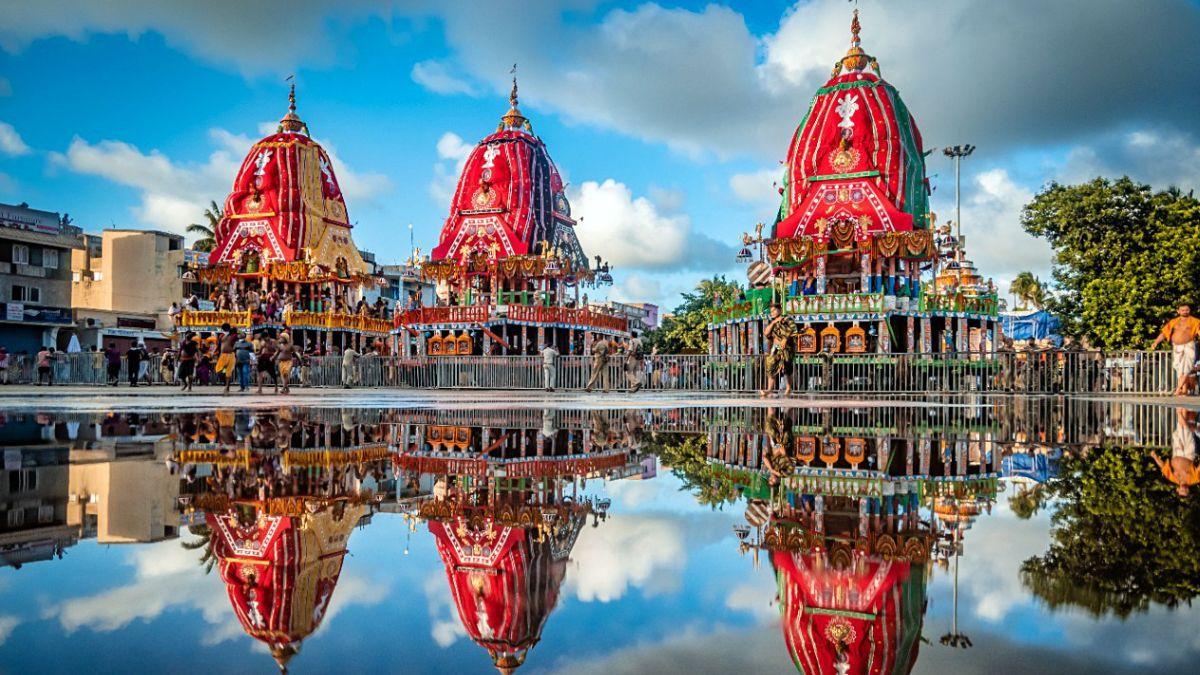
The Ratha Yatra of Puri, also rendered as the Ratha Jatra, is considered the oldest and largest Hindu chariot festival celebrated annually, on the bright half of the lunar month of Ashadh (June–July).The festival is held at the city of Puri, in the state of Odisha, India and associated with the deity Jagannath (a form of Vishnu or Krishna).During the festival, three deities (Jagannath, his brother Balabhadra and sister Subhadra) are drawn by a multitude of devotees in three massive, wooden chariots on bada danda (the grand avenue) to Gundicha Temple whereby they reside there for a week and then return to the Jagnannath temple.
Read More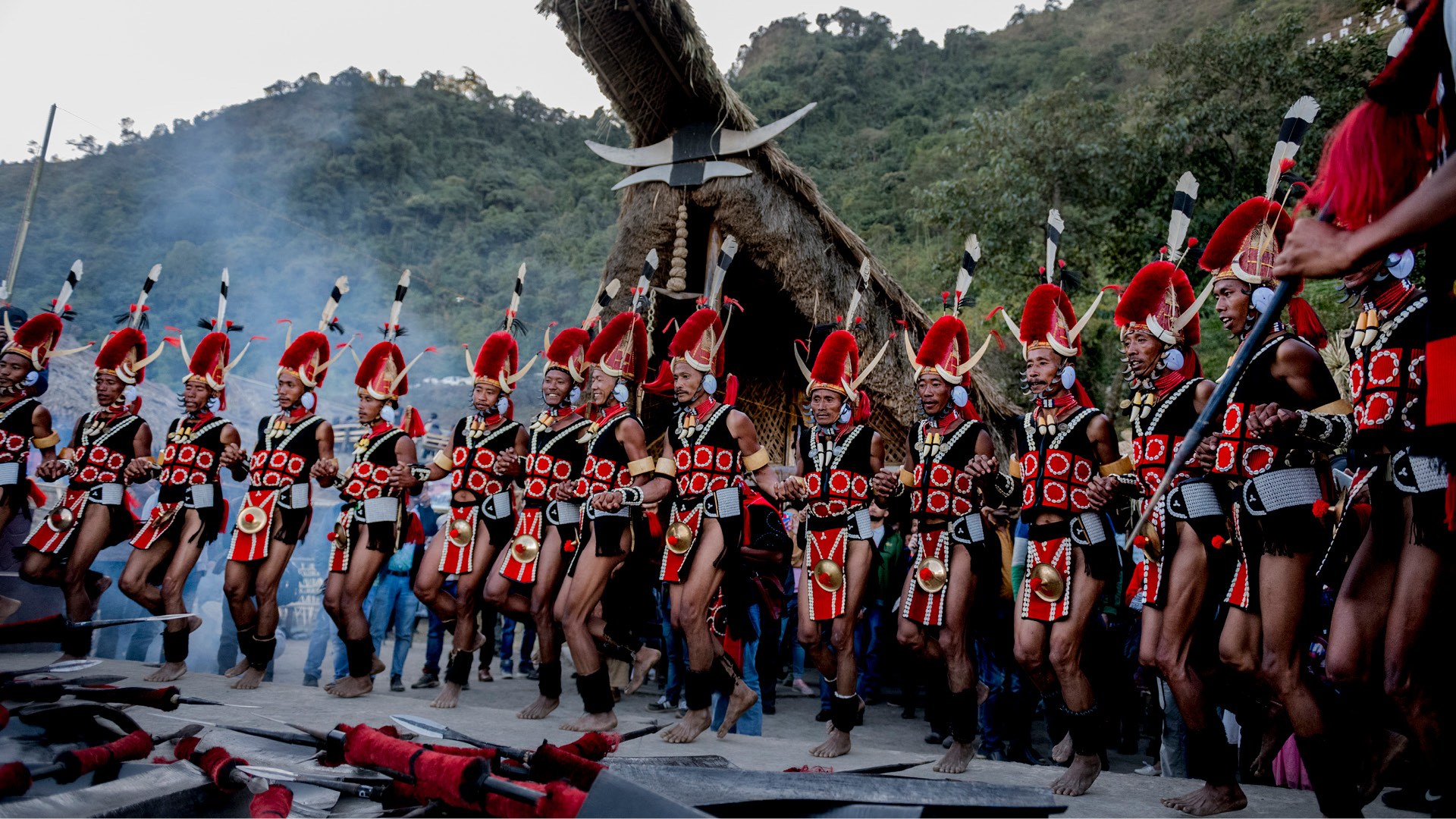
The Hornbill Festival is an annual festival celebrated from 1 to 10 of December in the Northeastern Indian state of Nagaland.The festival represents all ethnic groups of Nagaland for which it is also called the Festival of Festivals. Organized by the Department of State Tourism and Department of Art & Culture, the Hornbill Festival showcases a mélange of cultural displays under one roof. The main venue of the Hornbill Festival is held at the Kisama Heritage Village located in the Southern Angami region of Kohima District which is about 12 km from Kohima. All the ethnic groups of Nagaland take part in this festival. The aim of the festival is to revive and protect the rich culture of Nagaland and display its extravaganza and traditions. For visitors it means a closer understanding of the people and culture of Nagaland, and an opportunity to experience the food, songs, dances and customs of Nagaland.
Read More